Now that we know how decks are played according to their playstyles, we can see it's strengh and weaknesses.
Knowing a deck strengh and weakness is a very interesting thing : it can help your build by letting you know what you should look to fix with personnal techs, and let you know what you should keep in mind while playing the deck.
And it is a very good reflection exercice : you will rearrange the ideas you get from the playtests.
This is why I highly recommend to any Buddyfight content creators to do the same. Not only it is usefull for the viewer / reader, but it will also help you have clearer ideas (I did it with Wizard and Purgatory knight, and it was usefull).
Here are all the ratings :
Mains : Field control - Damage - Defense - Card gain - Consistency
Secondary : Power play - Gauge management - Options
Field power : Monster / card destruction, Power, number of attack.
How easily can you destroy your opponent's field, if you opponent calls a wall to the center, can you deal with it easily ? If you can clean the board each turn, your opponent will quickly run out of cards.
For instance, Purgatory knights have a lot of destruction effect, 6k power, multiple attacks from Demios.
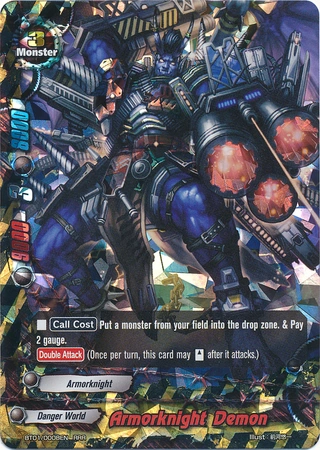
Damage : Criticals, burn effect, number of attacks.
How fast can you kill your opponent ? Can you abuse an open center ?
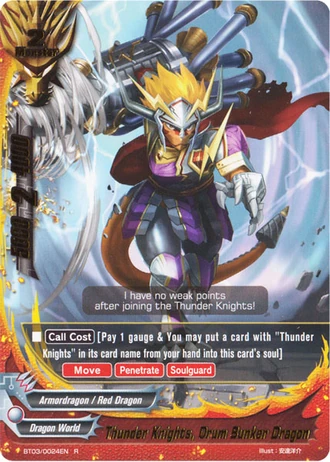 Armorknigt Ace can quickly deal a lot of damages with all the monsters/weapons with 3 criticals.
Armorknigt Ace can quickly deal a lot of damages with all the monsters/weapons with 3 criticals.Defense : The stat defense, cards with restriction abilities, Counter cards. How much do you reduce the number of actions from your opponent ?
Thunder knight have a lot of defense, with move, 5k+ defenses, 8 Dragon shields, Dragobond...
Consistency : How frequently do you have a playable hand ? Do you rely on precise cards ? (Note : you must win 2 out of 3 rounds to win a game, so consider playing a game with a consistency over 66% [thanks to Kingsofpanda for pointing that out]).
Here are the two "bonus" points. There are the two at the bottom of the chart because they are less important than the first five.
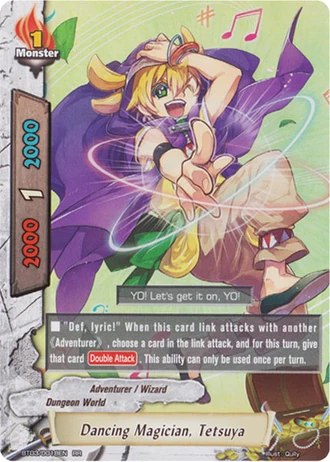
Power plays : Is there plays that can seal the game on their own ? For instance Tetsuya can carry the game on it's own. Not only does it sometimes makes some no-games, but it also forces your opponent to alwys keep the possibility it in mind.
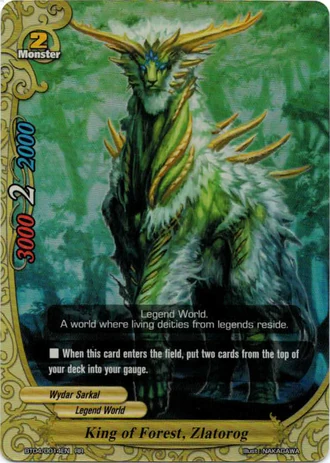 Boss monsters in set up decks (Gold ritter etc) are not in this pack, because they are the key to the deck. Tetsuya is a power play because a Dungeon deck can win without him.
Boss monsters in set up decks (Gold ritter etc) are not in this pack, because they are the key to the deck. Tetsuya is a power play because a Dungeon deck can win without him.Gauge management : How low the gauge costs are ? And are there good charge effects ? Having low gauge costs / good gauge chargers allow you to play all your options at a given time, and a too high gauge cost will force you to play charger (Solomon 1st key...) which are cards disadvantage, and makes you reliant to those precise cards.
Options :
Speed is not important. Speed is what define the style of the deck, but in no way having a faster deck means having a better deck.
Finally, two situationals criterias. They are note worthy, but because as they are hightly situationals, they aren't usefull in a deck profile from a content creator.
Metagame : How good are the match up against the best/most popular decks in the moment ? Wizard is super strong against open center monster/low defense decks, where against Ancient world's high defense, it will become a lot thougher.
Popularity : The least popular the deck is the least knowledge your opponent will have on your deck and the least hate there will be in the side deck.
Here we are the article is "done", I quote it because it is still and will always be up to a debate, and I will change it if someone brings a good point. So feel free to talk about it in the comment section !
You can fin an empty sheet here, and if you want to see it in use; I made reviews for Wizard and Purgatory knights !
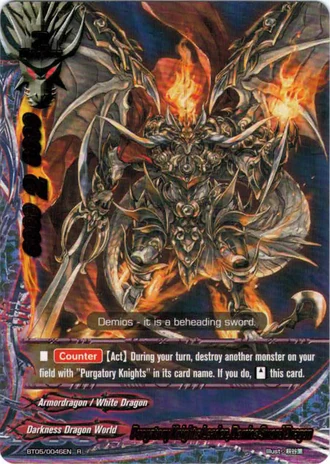
Aucun commentaire:
Enregistrer un commentaire